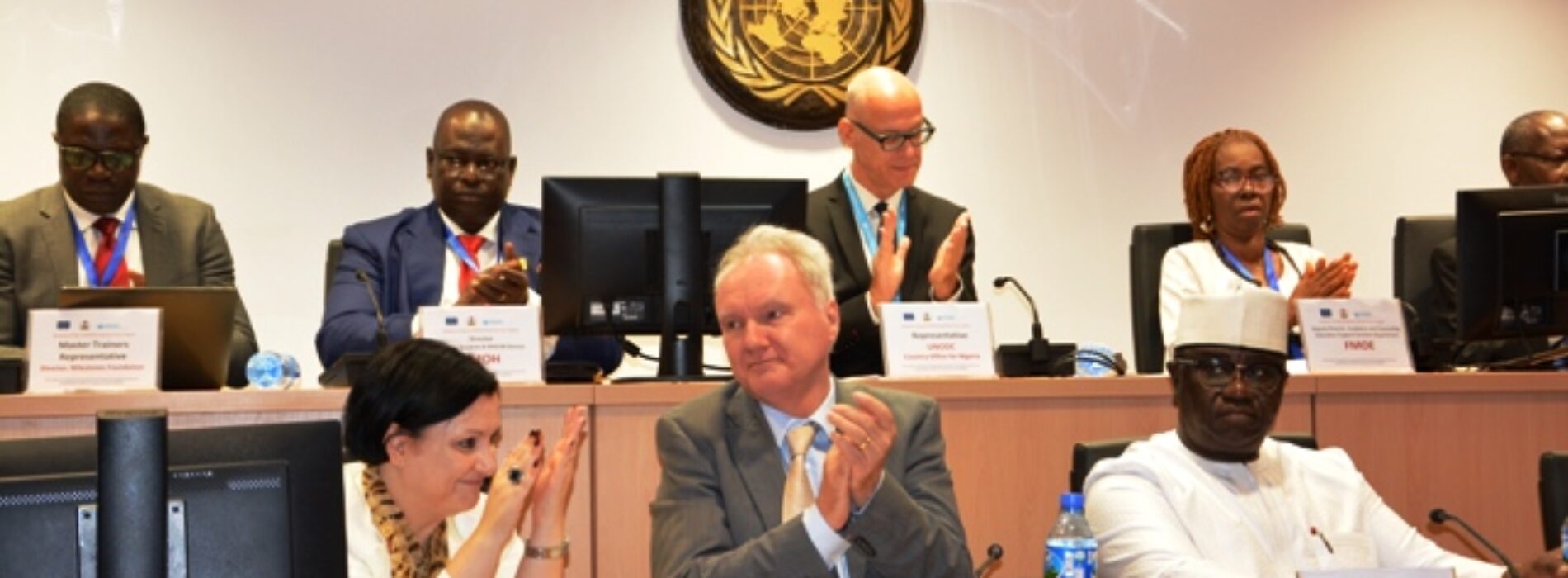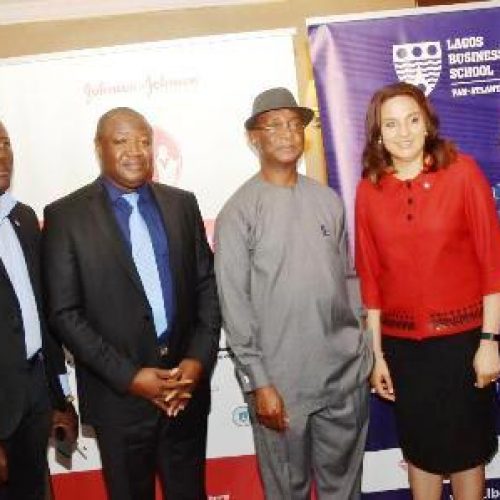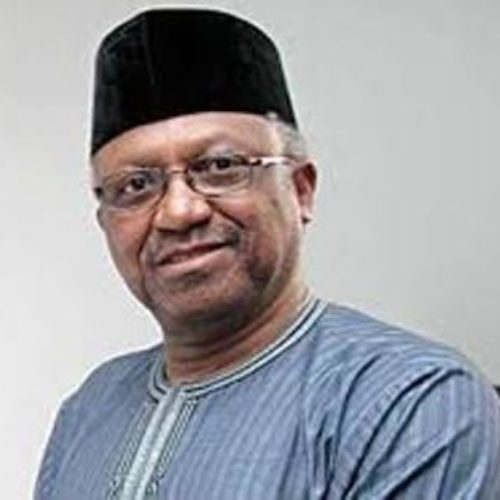<strong>Nigeria-EU-UNODC Partnership Project on Drug Control closes</strong>
As the European Union funded project “Response to Drugs and Related Organized Crime” implemented by the United Nations Office on Drugs and Crime, UNODC, comes to an end, stakeholders gathered at the United Nations House in Abuja to reflect on the project’s achievements.
Running for a full decade and implementing 40 million USD, it is financially the largest and longest running of its kind ever implemented by UNODC in Africa.
Stakeholders, including the Honorable Minister of State for Budget and National Planning, Prince Clem Ikanade Agba, the Minister of State for Health, Barr. Ekumankama Joseph Nkama, the Chairman of the National Drug Law Enforcement Agency represented by the Secretary, Shadrach Haruna, Director General, National Orientation Agency, NOA, Dr. Garba Abari and the United Nations Resident Coordinator, Matthias Schmale concurred that the project had indeed achieved its objectives of building capacities, both at federal and state levels, to curb illicit drug production and trafficking, to prevent drug use among young people, and to increase access to drug treatment and care services in Nigeria.
According to the independent project evaluators, 88% of project stakeholders attested that the project had been highly relevant and had been critical in transforming Nigeria’s response to drug control from a primarily law enforcement-based approach to a balanced, holistic, evidence-based, and human rights compliant approach.
Over the course of a decade, key project achievements included the development and implementation of two National Drug Control Master Plan(s),the adoption of sentencing guidelines for drug related offences, the review and amendment of the National Drug Law Enforcement Agency (NDLEA) Act 2011, as well as the production of a range of policies, standard operating procedures, guidelines, information materials and other knowledge products.
In partnership with the Federal Ministry of Education and several State Commissions of Education, the project supported the adaptation and roll out of UNPLUGGED, a school-based drug prevention programme, across350secondary schools, reaching more than 70,000 students.
The project also supported the establishment of two civil society networks, helping hundreds of NGOs active in the areas of drug prevention, treatment and care to coordinate their services and strengthen their advocacy efforts. Support to civil society also entailed the establishment of eight community-based drug treatment drop-in-centres (DICs) to provide free services to people who use drugs and their families. To close the treatment gap facing women and girls, three of these drop-in centres were created to specifically cater for the needs of female drug users. Combined, these centres provided treatment services to over 6,000 drug users, including 2,377 women and girls. When the COVID-19 outbreak hindered access of drug users to essential counselling and treatment services, the project helped 130 drug treatment professionals, previously trained by UNODC, to establish DrugHelpNet with a view to providing over-the-phone drug treatment services. Over fifteen hundred (1500) people who use drugs and their families received support.
Awareness raising and sensitization was another important aspect of the drug demand reduction efforts advanced by the project. More specifically, the project developed a Drug Prevention, Treatment and Care (DPTC) Sensitisation training programme, which was delivered to more than 8,000 policy makers, members of state-based drug control committees, primary health care professionals, frontline law enforcement officers, as well as traditional, community and religious leaders frequently in contact with drug users.
Capacity building of frontline law enforcement officers was another key component of the project providing thousands of NDLEA officers with critical skill sets on intelligence collection and analysis, drug interception tactics, electronic interviewing, criminal investigations, financial investigations, and related topics. To ensure the sustainability of this effort, the project trained more than 50 master trainers, provided teaching tools and logistic upgrades to the NDLEA training college in Jos, supported the development of tailormade training materials, and provided access to 33 law enforcement related e-learning courses through UNODC’s Global e-Learning programme.
About author
You might also like
Lassa fever: Benue records 46 cases, 9 deaths
as FG announces plans for national de-ratisation campaign Benue State has reportedly recorded 46 Lassa Fever cases and nine deaths in seven Local Government Areas, LGAs, of the state. Some of
Africa requires prudent management to improve healthcare – Expert
Healthcare practitioners have been charged to exhibit managerial skills to be able to face daunting challenges confronting healthcare system in sub-Saharan Africa. Making this call during the opening ceremony of
Enter Ehanire, Mamora as new health ministers
Immediate past Minister of State for Health, Dr. Osagie Emmanuel Ehanire and former Speaker, Lagos State House of Assembly, Senator Adeleke Olurunnimbe Mamora were sworn in today by President Muhammadu






0 Comments
No Comments Yet!
You can be first to comment this post!